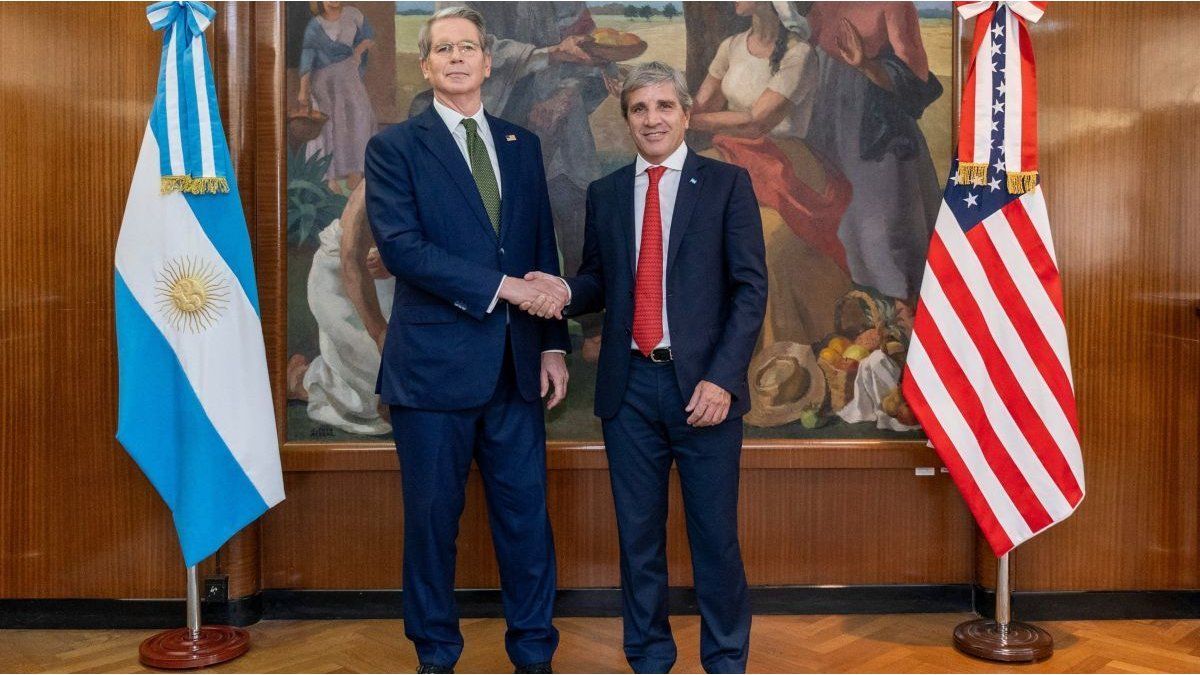Image: HERBERT PFARRHOFER (APA)
The ÖVP and the Greens voted in favor of the draft law presented by the government, which includes the conversion of the GIS fee into a household fee from the beginning of 2024 and an expansion of the ORF’s digital offering. The significant reduction in text messages on the overview page of orf.at and stricter advertising restrictions in the radio and online areas are thus on track. In addition, the ORF is obliged to cut costs, for example in terms of staff, and to be more transparent.
The legislative package was rejected unanimously by the opposition. Among other things, she criticized the fact that the reform was not being used to strengthen ORF’s independence. The FPÖ also opposed the introduction of a new “compulsory tax” in times of inflation. However, various motions for resolutions by the opposition parties did not find a majority in the vote.
Monthly ORF fee of €15.3
The amount of the new ORF household fee is set at €15.3 per month for the years 2024 to 2026, which is below the current GIS fee of €18.59. In addition, the federal government will in future waive the art funding contribution that is collected together with the GIS fee. Media Minister Susanne Raab asserted that this would significantly relieve the burden on 3.7 million people in Austria.
The amendment will also allow ORF to provide purely online services in the future. For example, a separate children’s channel is being considered. At the same time, the retrieval time for programs in the ORF media library will be extended. In return, the ORF is required to cooperate more closely with private broadcasters if they so wish. Both the specialist broadcaster Sport+ and the radio symphony orchestra are to remain in place until at least the end of 2026. After that, Sport+ could migrate to the Internet.
SPÖ demands social graduation of the household fee
On the part of the SPÖ, Jörg Leichtfried criticized, among other things, the new financing model for the ORF. The SPÖ stands by public broadcasting and secured funding for the ORF, he emphasized. In his opinion, however, the planned household levy is socially unfair. It isn’t fair if “a millionaire heiress in the Seevilla” pays the same as “the supermarket cashier in the two-room apartment”. In this sense, he and his parliamentary group colleagues Alois Stöger, Gabriele Heinisch-Hosek and Maximilian Köllner advocated a social staggering of the fee.
In addition, the SPÖ pushed for a permanent preservation of the radio symphony orchestra and the special interest channel Sport+ as well as for a reform of the committees. It is unacceptable for a party that received 37% of the votes in the last national elections to have a two-thirds majority on the ORF board of trustees, said Leichtfried. He also insisted on greater independence for the ORF. Deputy Stöger criticized that the “blue side” was “destroyed” at the expense of the fee payers, for which he held ORF General Director Roland Weißmann particularly responsible. For the special interest channel Sport+, the plenary session also had a motion for a resolution from SPÖ MP Köllner, who, however, remained in the minority in the vote.
FPÖ criticizes “compulsory tax” and locates “scandal”
Three motions for resolutions by the FPÖ were also rejected by the majority of MPs. In addition to a complete abolition of the “ORF compulsory fees”, FPÖ leader Herbert Kickl and his parliamentary group colleagues called for a ban on what they believed to be ideologically motivated Binnen-I in the public broadcaster and called on the government to object to a “gag decree ” of the ORF to proceed to the new financing model.
What was decided today was “a disgrace, shameful and a scandal,” Kickl brought up the heavy artillery in the debate. Under the trivializing name household levy, “a compulsory tax worth hundreds of millions” will be introduced. This is not only a burden on the population, but also “an attack on media diversity” at the expense of private media companies. Kickl is certain that the vast majority of the population and voters do not want the fee and announced that the household fee will be abolished again when the FPÖ leads the next federal government. “That’s at the top of our list,” said Kickl.
Kickl also directed sharp attacks against the ORF itself. The household fee flows into a “media political re-education institution”, which can be used as a “propaganda tool of the powerful” and spread fake news during the Corona period, said Kickl. In addition, “party-political bigwigs and privilege knights”, “left-wing madness”, “dumbingly boring” talk formats and “worn-out and worn-out jesters and cabaret artists” would be financed. A government under the FPÖ will also ensure that the ORF fulfills its core mission again.
Kickl’s criticism was reinforced by FPÖ MPs Dagmar Belakowitsch and Petra Steger. For those who do not use the ORF, it will be more expensive in the future, countered Belakowitsch Media Minister Susanne Raab. In addition, she accused the ORF of not complying with the requirement of objectivity or the information and education mandate. Many employees of the ORF would also work in precarious conditions, while others received top salaries. Steger also considers the ORF fee to be in breach of equality and expects the law to “preoccupy the courts” in the next few years.
NEOS miss reforms
NEOS media spokeswoman Henrike Brandstötter spoke of a “botch” and a missed opportunity. In her view, the present package is not a reform, rather the status quo at ORF is “cemented”. Any problems that exist now will continue to exist.
Specifically, Brandstötter misses, among other things, a committee reform. The ORF needed to be depoliticized in order to free it “from the stranglehold of the parties,” she said. In addition, one must discuss what public service broadcasting should achieve in the 21st century and what “public value” is. Brandstötter sees ORF’s 120 podcasts on a wide variety of topics as a good example of current “excesses” whose added value under public law should be questioned. This leads to massive market distortions, since the ORF, in contrast to private media companies, does not have to worry about financing.
NEOS MP Julia Seidl also complained that party political influence on ORF was still possible. This is playing into the hands of the FPÖ, she emphasized. However, a motion for a resolution by NEOS aimed at sharpening and redefining the ORF’s public service mandate with the involvement of civil society did not find a majority.
ÖVP emphasizes the importance of ORF as an economic factor
ÖVP media spokesman Kurt Egger and Greens club chairwoman Sigrid Maurer, among others, defended the present amendment on behalf of the coalition parties. Egger emphasized that it was necessary to implement the VfGH ruling on the GIS fees and to close the streaming gap. However, the planned household tax will make it cheaper for many. At the same time, the amendment ensures that there will be a leaner, more transparent, better and more user-friendly ORF. In the future, for example, top salaries and advertising measures would have to be disclosed. The preservation of media diversity was also a major concern of the ÖVP.
The ÖVP advocates independent journalism beyond fake news and “liberal truths”, emphasized Egger. Independent journalism is a corrective for politics. One should also not forget that the ORF is “a great economic factor”. So they invest millions in film funding, in culture and in popular sport. If the FPÖ doesn’t want that, they should say so, Egger explained. His part colleagues Karl Schmidhofer and Maria Großbauer campaigned for a variety of sports broadcasts and for the preservation of the radio symphony orchestra.
Greens: ORF is essential for Austrian democracy
Greens club chairwoman Sigrid Maurer emphasized that the amendment not only reorganizes the financing of the ORF, but also enables the broadcaster to become “more digital and future-proof”. At the same time, the ORF is committed to more accessibility.
A diverse and independent media landscape and the ORF are indispensable for Austrian democracy, emphasized Maurer. Quality journalism is needed that provides the population with reliable and verified information. In times of fake news, this is more important than ever. In contrast to the FPÖ, she also wants to continue living in a country where politicians have to face critical questions from journalists. The population should not be dependent on party channels such as FPÖ-TV for information, where fake news and “Putin propaganda” are spread. Maurer also pointed out that the ORF offer is used by 95% of the population. In the future, people would pay less than before and get more programming.
As far as the “blue page” is concerned, Green MP Eva Blimlinger says that “thank God” we managed to get it, even if she would have preferred to continue with a broader range of texts. According to Blimlinger, the Greens are also in favor of changes to the Foundation Council and the Public Council – in this context they are relying on the Constitutional Court, where a complaint is pending.
Raab: It will be significantly cheaper for fee payers
Media Minister Susanne Raab emphasized that two goals were important to her when implementing the VfGH findings: It must be cheaper for all people “who have dutifully paid the GIS fee up to now”, and the ORF must save. Both have been achieved. She is convinced that the population wants a public broadcaster that is leaner and more efficient. The amendment will bring “an end to excessive privileges” and there will also be a significantly better program and significantly more transparency.
Regarding the criticism of the content of the ORF, Raab noted that she too “did not agree with everything” that the ORF broadcast. However, as in other countries, there is a need for public broadcasting in Austria. You also have to finance this.
more from culture
The Thieving Women of Wilhering
The woman from Scharnstein, who landed cinema hits with her historical material
Bruckner year 2024: David Wagner cycles through the Bruckner streets
Elton John: eccentric hit guarantor says goodbye to the concert stage
: Nachrichten
I am an author and journalist who has worked in the entertainment industry for over a decade. I currently work as a news editor at a major news website, and my focus is on covering the latest trends in entertainment. I also write occasional pieces for other outlets, and have authored two books about the entertainment industry.




